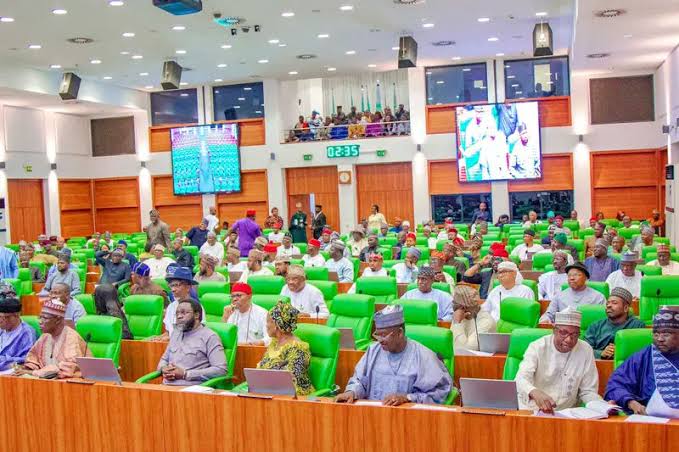
The House of Representatives on Tuesday passed for first reading a bill aimed at banning public and civil servants, along with their immediate family members, from using private schools and healthcare facilities within Nigeria.
Titled the *Private Institutions and Health Care Service Providers (Prohibition) Bill, 2025*, the proposed legislation was sponsored by Hon. Amobi Godwin Ogah, who represents the Isuikwuato/Umunneochi Federal Constituency in Abia State.
Addressing journalists after the bill’s introduction, Ogah described it as a landmark proposal designed to rebuild trust in Nigeria’s public institutions and prevent conflicts of interest in service delivery. He stressed that the bill would compel public officials to utilize the same services as the citizens they serve, thereby promoting integrity and accountability in governance.
“This bill seeks to restrict all public and civil servants—and their immediate families—from accessing private schools and healthcare facilities to prevent conflicts of interest, rebuild public confidence, and uphold high standards in public institutions,” Ogah stated.
He invoked the legacy of Nigeria’s founding leaders—Sir Ahmadu Bello, Dr. Nnamdi Azikiwe, Chief Obafemi Awolowo, and Alhaji Tafawa Balewa—who were all educated in public or mission schools, contrasting their era with today’s reality where government officials often bypass local systems in favor of private or foreign services.
Ogah decried the current preference among public servants for private education and medical care, calling it a dangerous shift that undermines public institutions.
Highlighting key statistics, he noted that despite a N1.336 trillion allocation to health in the 2024 budget, Nigerians still spend over \$1 billion annually on medical treatment abroad. During the administration of the late President Muhammadu Buhari, medical tourism cost the country about \$29.29 billion in eight years. Additionally, Nigerians spent \$38.17 million on foreign education between January and March 2024 alone, and \$218.87 million in 2023.
“If we have started the removal of petroleum subsidy, we must also enforce this Bill to prohibit the patronizing of private schools and health care services by public and civil servants,” he asserted.
According to Ogah, the continuous neglect of public institutions due to elite preference for private alternatives has led to “a shadow of their former selves, with little or no infrastructural development and fallen standards of services.”
“It does not speak well of our country that our Presidents and notable government functionaries are seen to be going abroad for medical treatment—and even dying in the process,” he said.
The proposed legislation, he argued, is aimed at putting an end to what he termed “medical and educational tourism” among public sector workers, adding that promoting local institutions would enhance national pride and institutional accountability.
“I therefore call on Nigerians and indeed the Fourth Estate of the Realm to join me in supporting this Bill and begin a new consciousness of promoting our health care and educational institutions,” Ogah urged.
“Let the campaign begin with hashtag #PromoteOurSchoolsAndHealthcareServices;PrivateInstitutionsAndHealthcareServicesProvidersProhibitionBill2025.”








